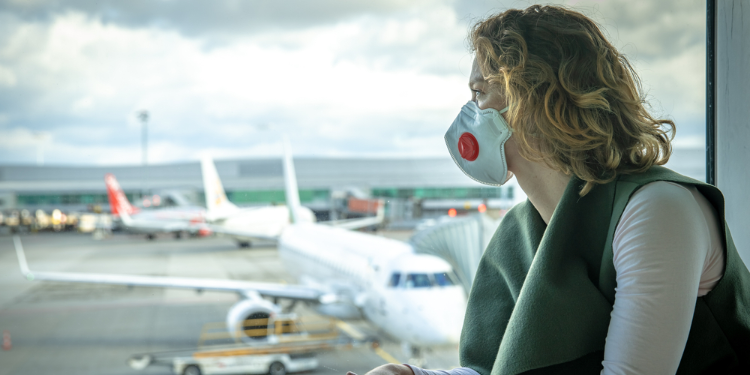
Many countries around the world seem to have come to a standstill with a new surge of COVID-19 during the past few weeks, and a new variant. While some of them prefer to keep their borders closed, others have reopened under certain conditions. Here's an update for those who are looking to relocate overseas during this period.
Europe
Several countries, like Germany, Austria, Belgium, Italy, etc., have their borders open. Still, travellers have to meet certain criteria, regardless of the purpose of their stay. Besides the health restrictions, some of them are partially or entirely locked down. Travellers to Germany, for example, are quarantined for 10 days. However, the quarantine may be interrupted if they are negatively tested for COVID-19 on the 5th day following their arrival. You will recall that the country was locked down once again on December 16, 2020, until the end of January. Hotels, bars, restaurants, as well as schools and cultural areas, remain closed during this period.
The UK is currently under strict lockdown due to the rapid progression of the new variant of COVID-19. This measure was to last until mid-February, but it was recently extended until March. Still, UK borders remain open to travellers under certain conditions. A 5-day quarantine is mandatory. Except for British residents, all travellers must produce a negative PCR test carried out within 72 hours of arrival.
In Spain, several regions, including Valencia, Rioja and Catalonia, are under a curfew order. Since January 7, travel between the various municipalities of Catalonia is also prohibited for 10 days. Still, Spain remains open and requires negative PCR tests performed within 72 hours of travel by air or sea. Like Spain, Italy is also banning travel between different regions until January 15. The country has kept its borders open, so it is possible to travel there as long as you take a PCR test either less than 48 hours before travel or upon arrival. For its part, Austria quarantines travellers from most countries, except Australia, Finland, Ireland, Iceland, Japan, New Zealand, Norway, South Korea, Uruguay and the Vatican, for 10 days until January 10.
On the other hand, Denmark, Finland, the Czech Republic, as well as Russia, remain closed to international travel.
Middle East
While Qatar only allows the entry of working residents and their dependents, other countries like the United Arab Emirates and Oman have their borders open. In the UAE, for example, travellers are required to present a negative PCR test performed within 96 hours of departure, except for children under 12 years old. In Abu Dhabi, travellers are quarantined for 10 days and have to wear an electronic bracelet. In Sharjah, travellers are tested on their arrival and on the 8th day of quarantine. Those with positive results are then required to self-isolate for 14 days. In Oman, it's also compulsory to wear an electronic bracelet during the 7 days of quarantine. Besides, travellers are required to download the Tarassud app. Meanwhile, Turkey only quarantines travellers from the UK, Denmark and South Africa for 7 days following their arrival.
Asia
Many Asian countries, including China, the Philippines, Japan, India, Vietnam, Malaysia, Indonesia and Burma, keep their borders closed due to the new surge of COVID-19. In China, however, there are exceptions for holders of certain diplomatic or service visas. In the Philippines, only Filipino citizens and their families, as well as employees of embassies and international organisations, aircrews and permanent residents are allowed to enter. South Korea is one of the few Asian countries that are open during the crisis, but a 14-days quarantine and a negative PCR test carried out within 72 hours prior to their departure are mandatory. While the borders remain closed in Singapore, only people who have been in Australia, New Zealand, Vietnam or Brunei for the last 14 days are allowed to enter. In Thailand, visa-free stays are allowed for 45 days instead of 30, taking into account the 14 days of quarantine at a designated hotel. PCR tests have to be done within 72 hours of arrival and during the quarantine. Sri Lanka, meanwhile, intends to reopen its international borders from January 23, 2021.
America
The United States is currently not accepting travellers from the Schengen Area, the UK, Ireland, Brazil, China, and Iran. In Canada, only people holding a firm job offer, including working-holidayers, are allowed to enter provided they agree to self-isolate for 14 days after arrival. In Latin America, most countries, except Argentina, are open to air travel. So it's currently possible to travel to Brazil, Chile, Ecuador, Peru, the Dominican Republic and Mexico, for example. It's worth noting that the PCR test is not mandatory for entering Mexico and the Dominican Republic.
Oceania
Australia and New Zealand are keeping their borders closed until further notice. Only permanent residents and members of their families, and holders of certain visas, are allowed to enter. For more information, visit their immigration websites.
Africa
Many African countries, including Botswana, Cameroon, Mauritius, Ivory Coast, Kenya, Morocco and Tunisia, are open to international travel. However, to enter South Africa, a PCR test carried out less than 72 hours before departure is required. Travellers also have to download the “COVID Alert South Africa” app. In Mauritius, travellers are quarantined for 14 days in a designated hotel. PCR tests have to be carried out less than 7 days before departure and during the quarantine. Algeria and Senegal, on the other hand, are keeping their borders closed until further notice.



















